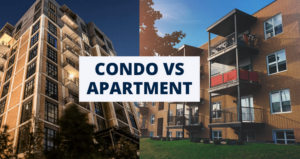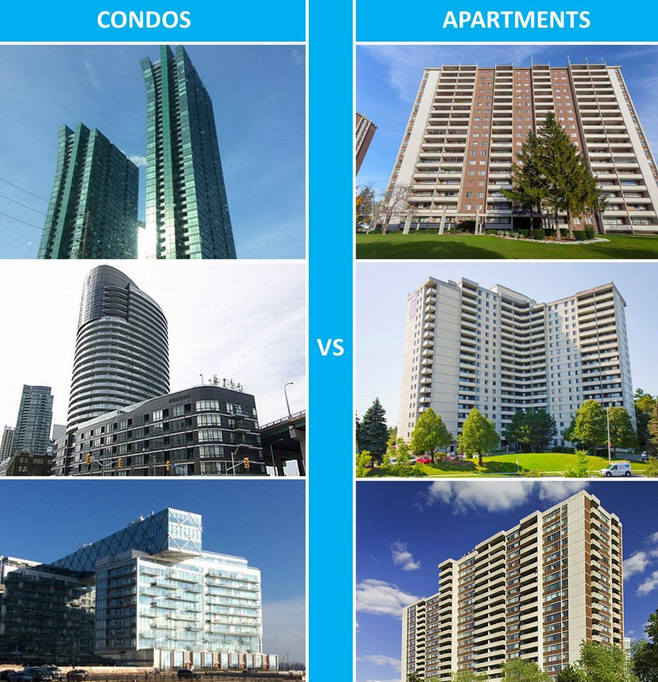
Condo vs. Apartment: While condos offer ownership benefits, apartments provide flexibility and fewer responsibilities, catering to diverse housing preferences. When it comes to urban living, the choice between a condo and an apartment can be perplexing. Both offer the convenience of city living, but they come with their own set of characteristics and considerations. In this guide, we’ll delve into the nuances of condos and apartments to help you understand the differences and make the right choice for your lifestyle.
Condos
Condominiums, or condos, are private residential units within a larger building or complex. Unlike apartments, condos are individually owned rather than rented. Condo owners typically own their unit outright and have shared ownership of common areas and amenities, such as hallways, elevators, and recreational facilities. This shared ownership is managed by a homeowners’ association (HOA), which sets rules and regulations for the community and collects fees to maintain common areas.
Apartments
Apartments, on the other hand, are rental units within a multi-unit building or complex owned by a landlord or property management company. Tenants pay monthly rent to occupy the space but do not own the unit itself. Unlike condos, apartments are often governed by a lease agreement rather than ownership, providing tenants with greater flexibility to move in and out without the responsibilities of ownership.
Key Differences
-
Ownership
The primary distinction between condos and apartments lies in ownership. Condo owners have full ownership rights to their unit and a shared interest in common areas, while apartment tenants rent their living space from a landlord or property management company.
-
Maintenance
In condos, owners are responsible for the maintenance and upkeep of their individual units, while the HOA manages common area maintenance and repairs. In apartments, maintenance and repairs are typically handled by the landlord or property management company.
-
Flexibility
Apartments offer greater flexibility for tenants, as leases are typically short-term and allow for easier relocation. Condos, on the other hand, may have stricter rules regarding subletting and renting out units.
-
Amenities
Condos often boast a range of amenities such as swimming pools, fitness centers, and concierge services, which are shared among residents. While some apartments offer amenities, they may be more limited compared to those found in condos.
- Investment Potential
Condos can be purchased as investment properties, offering the opportunity for appreciation and rental income. Apartments, being rental units, do not provide the same investment potential for tenants.
-
Cost
Condos often come with higher upfront costs, including a down payment and closing costs, as well as ongoing expenses such as HOA fees. Apartments, on the other hand, typically require a security deposit and first month’s rent, making them more accessible for renters with limited savings.
-
Customization
Condo owners have more freedom to customize their living space according to their preferences, such as renovating interiors or installing fixtures. Apartment tenants may have restrictions on modifications and alterations due to lease agreements and landlord policies.
-
Community Dynamics
Condo communities often foster a stronger sense of community among residents. Furthermore, they share ownership of common areas and participate in HOA meetings and events. Apartments may have less community engagement, as tenants may come and go more frequently.
-
Long-Term Stability
Condo ownership offers long-term stability and the potential for equity growth over time. However, condos are subject to market fluctuations and economic conditions. Renting an apartment provides more flexibility and less financial commitment. Additionally, it does not offer the same potential for wealth accumulation through property ownership.
Conclusion
In conclusion, in condo vs. apartment, the choice depends on various factors such as ownership preference, lifestyle, and financial considerations. Whether you opt for the independence of condo ownership or the flexibility of apartment living, understanding the differences between the two can help you make an informed decision that aligns with your needs and preferences.
